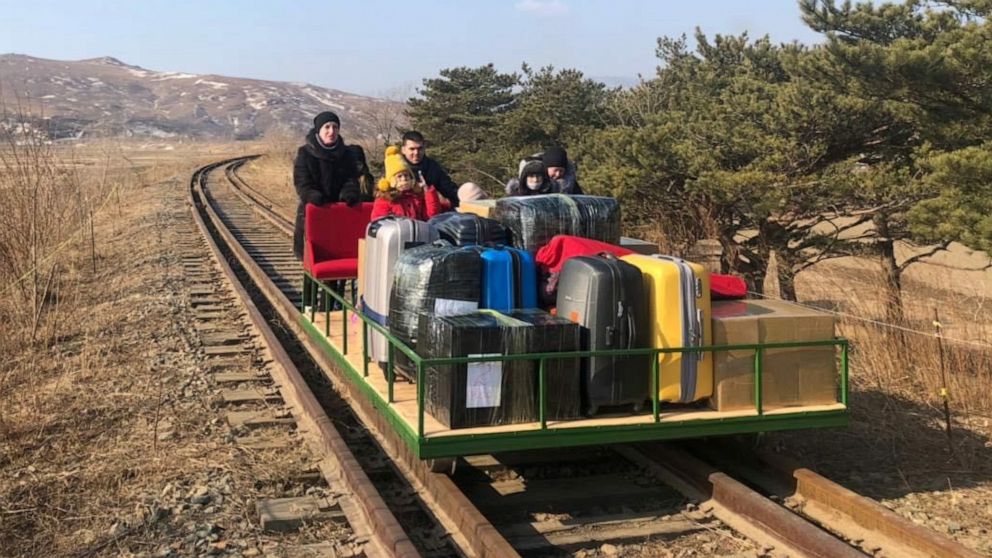COVID’s restrictions forced diplomats to find an unorthodox way home.
It is not your standard diplomatic transport.
A group of Russian diplomats and their families were forced to use a hand-powered railway tram to return from North Korea to Russia because of travel restrictions imposed by the pandemic.
A video published by the Russian Ministry of Foreign Affairs on Thursday shows diplomats pushing the hand truck, piled with their bags, along a railroad through an arid landscape near North Korea’s northern border.
The ministry said the group was working at its embassy in Pyongyang and was forced to improvise because travel connections between the two countries were cut off for more than a year.
“As the borders were closed more than a year ago and communication with passengers was suspended, it was necessary to return home for a long and difficult way”, said the ministry in a post on social networks, accompanying him with a hashtag in Russian: “No man was left behind.”
The group of eight embassy officials and members of their families, including children, first took a 32-hour train ride and then a bus to reach the border area, said the ministry, where the handcart was prepared and assembled in rails. Diplomats pushed the wheelbarrow more than a kilometer to cross the border.
In the video, the group smiles and applauds when crossing a bridge to the Russian side of the border in Khasan, where the Foreign Ministry said the group was received by their representatives who were waiting with a bus. The group was then driven a further 160 miles to Vladivostok airport.
The Russian ministry said one of the diplomats, Vladislav Sorokin, was secretary of the embassy.
North Korea closed its borders to international travel in January last year. The country has insisted that it has no cases of COVID-19, a dubious claim by many experts.
Many countries have struggled to repatriate their citizens and diplomats during the pandemic as international air travel has ended and countries have closed their borders. The US State Department said last April that it evacuated 6,000 diplomatic officials from around the world as the pandemic spread, an unprecedented number.
